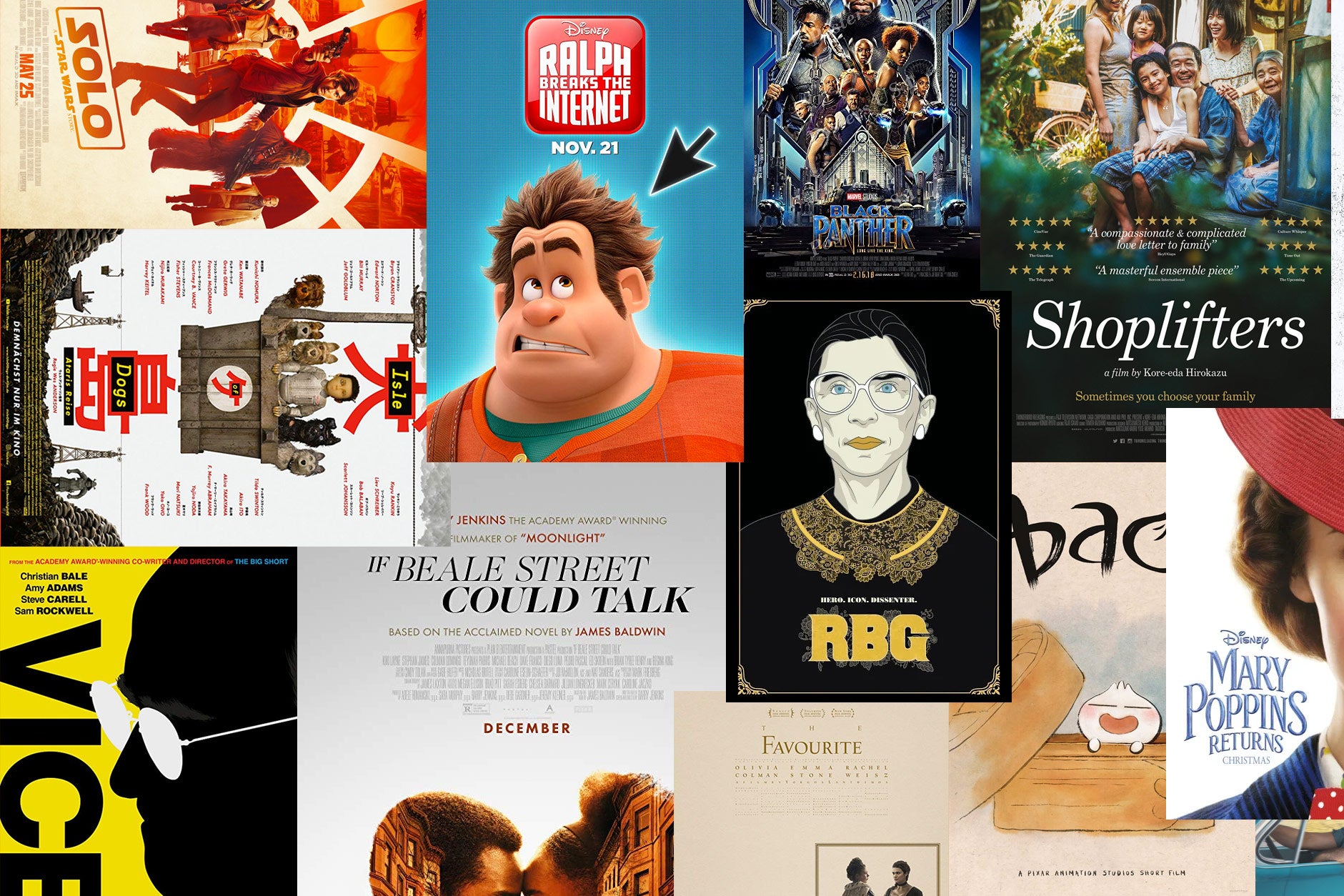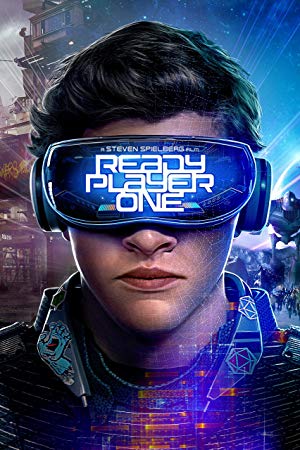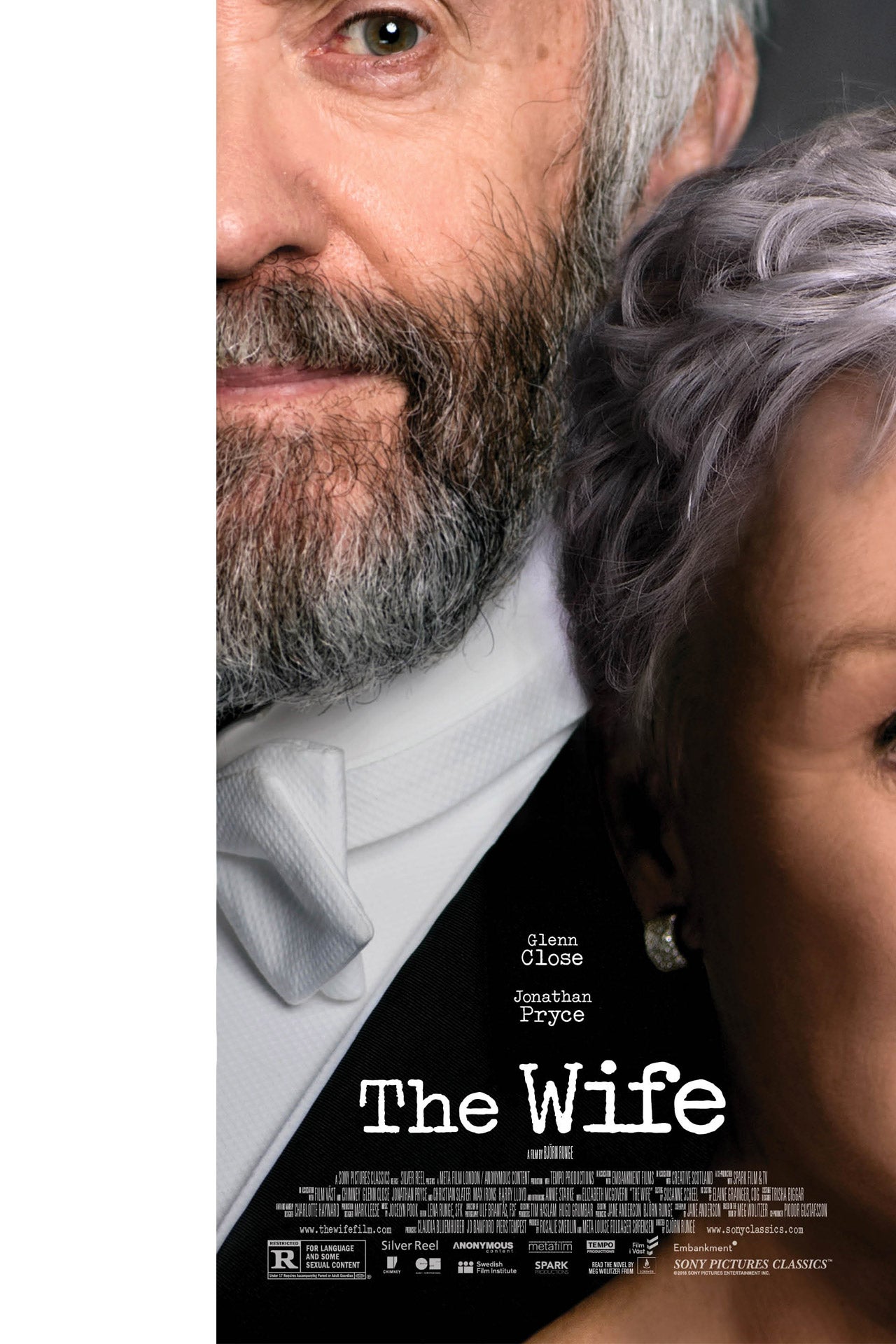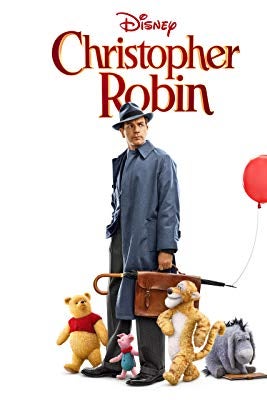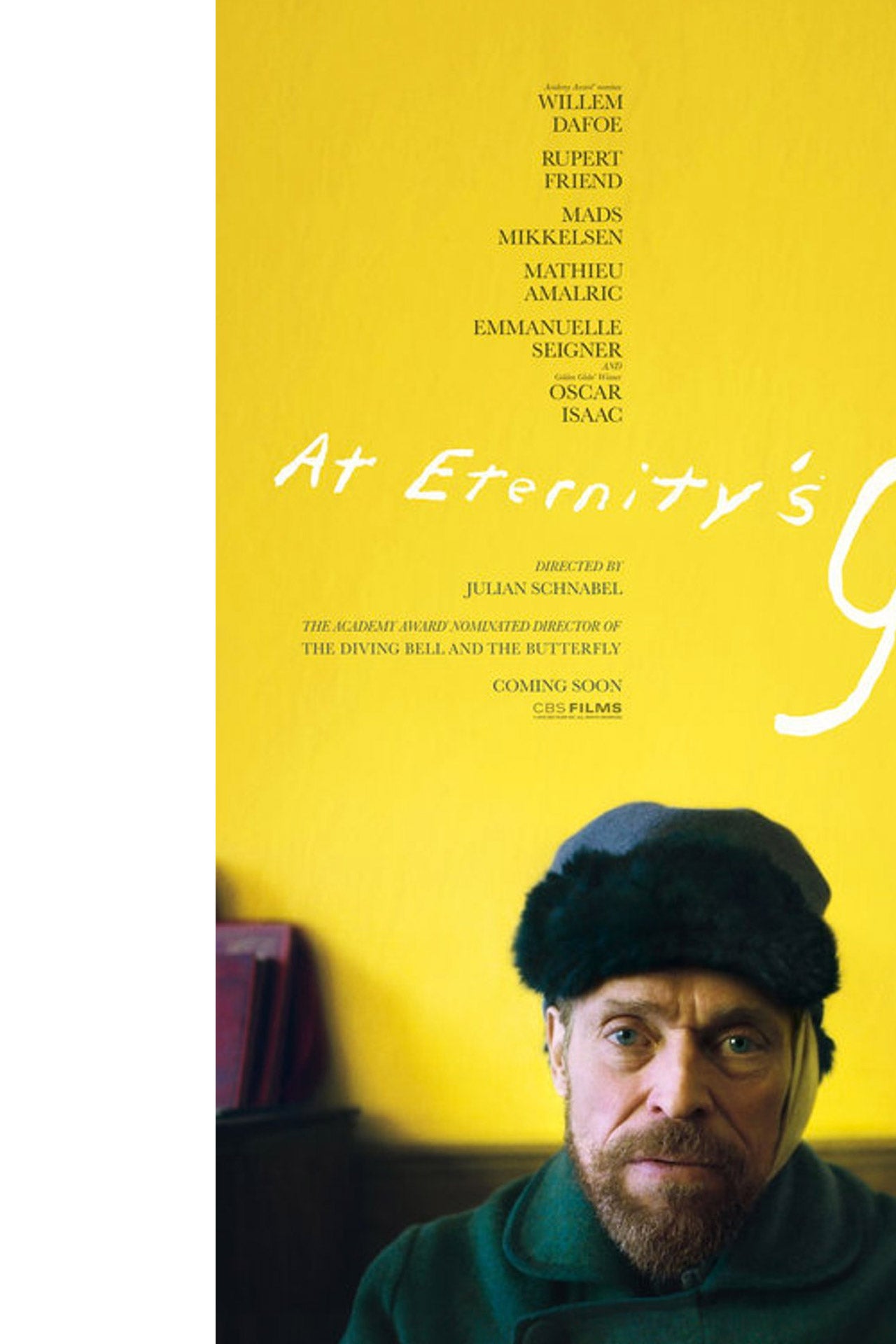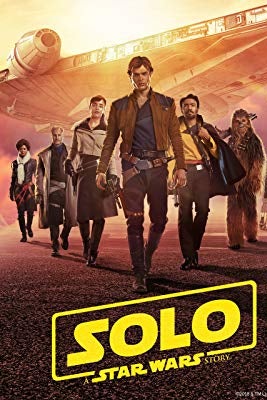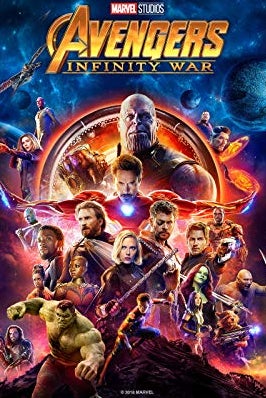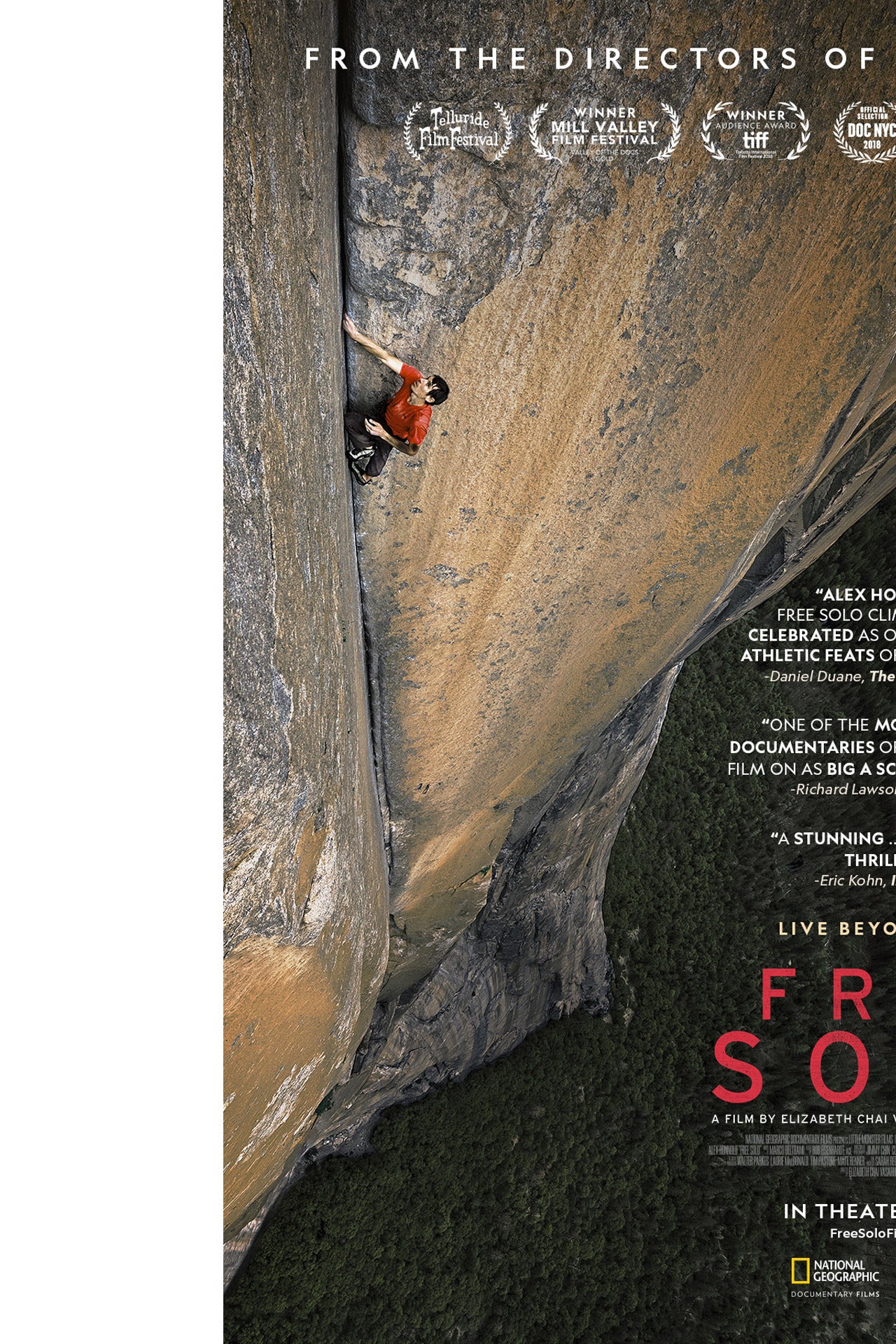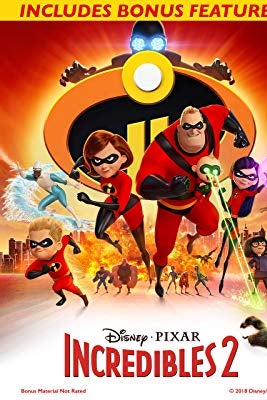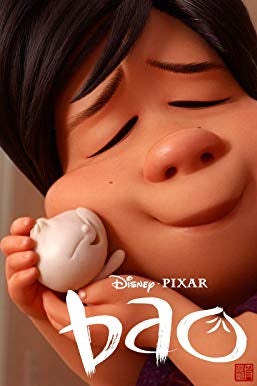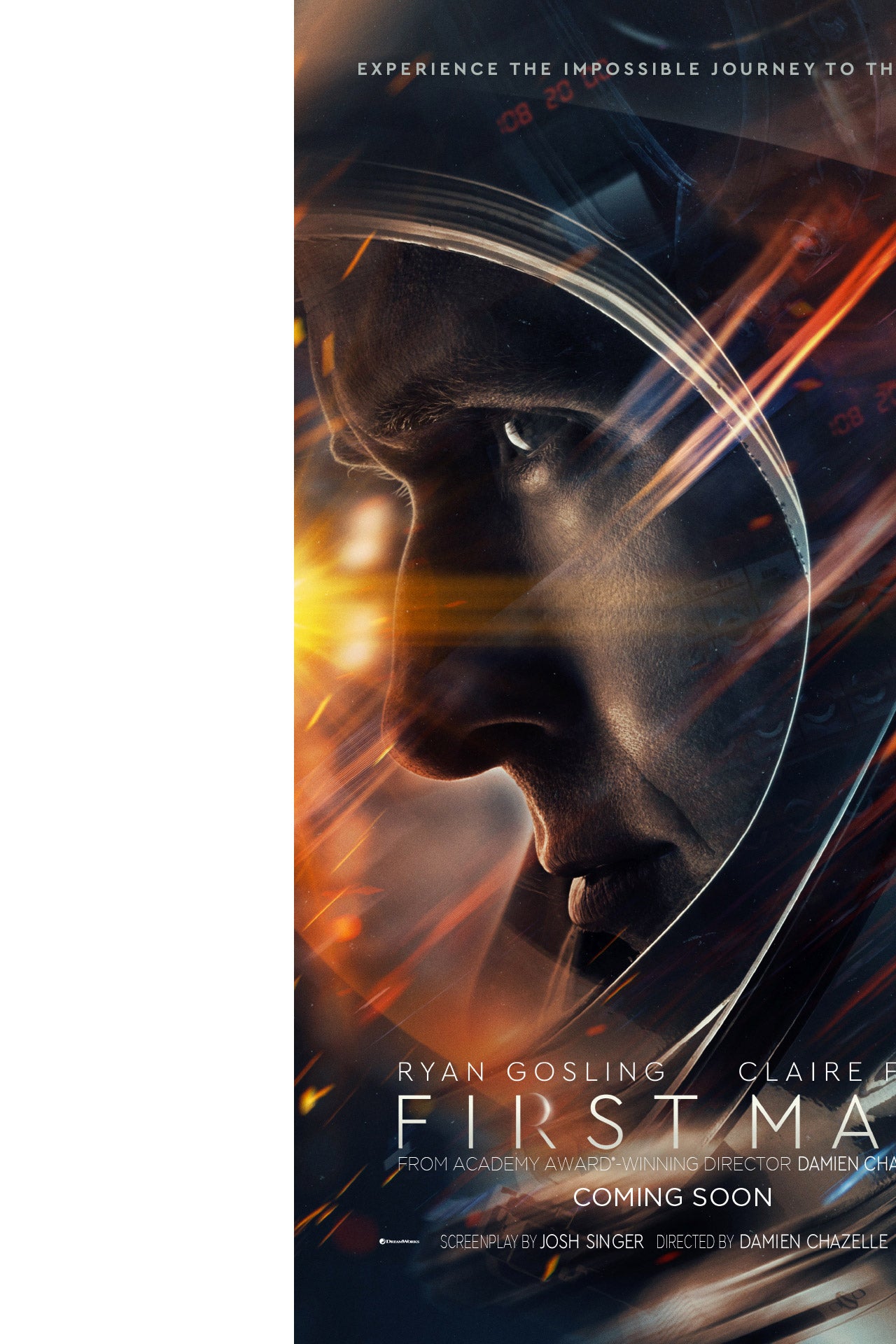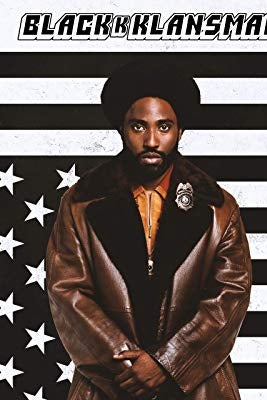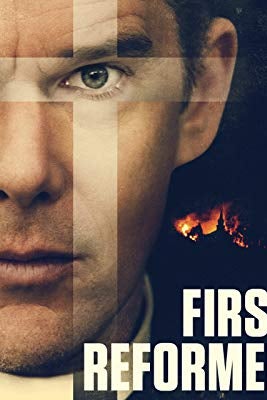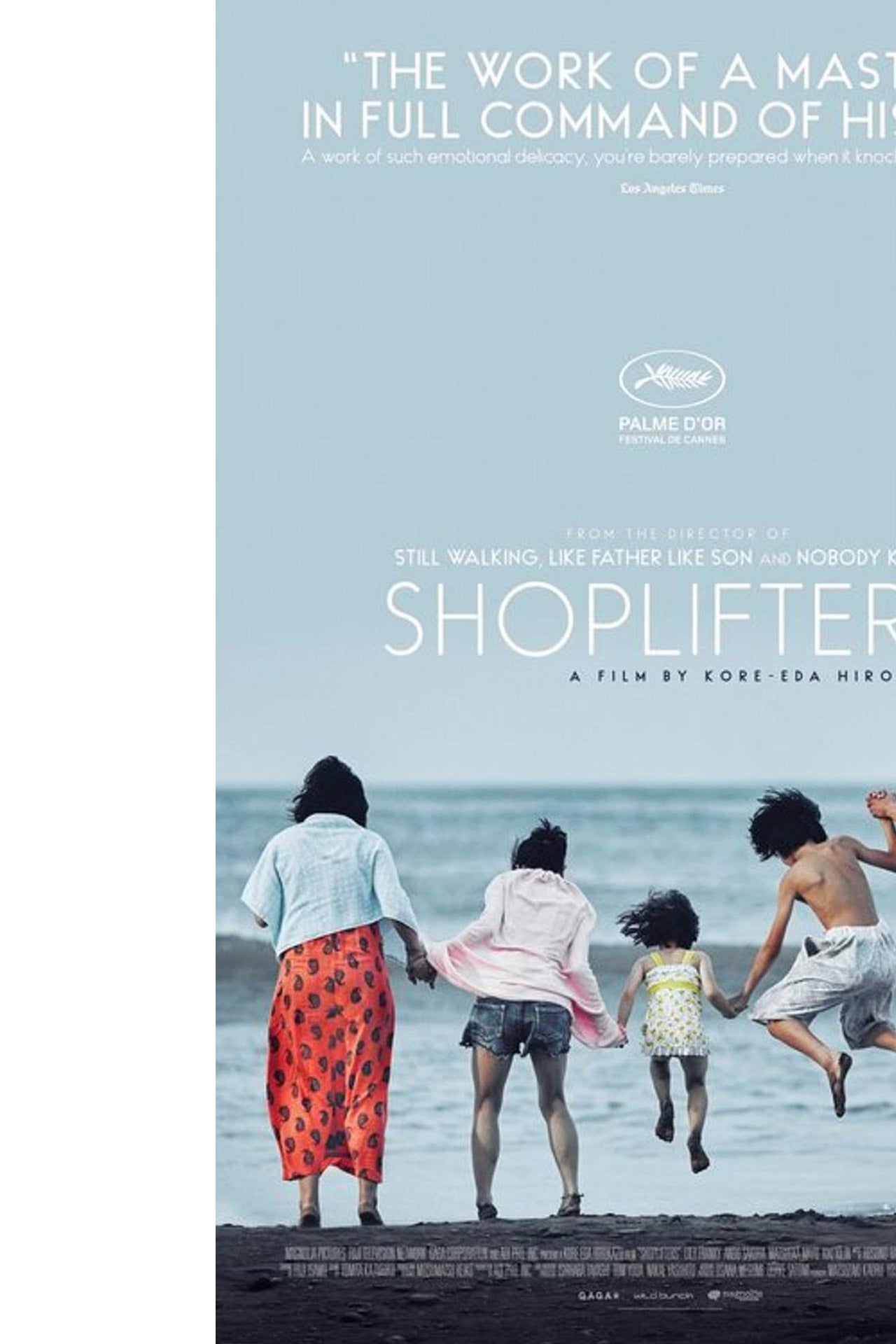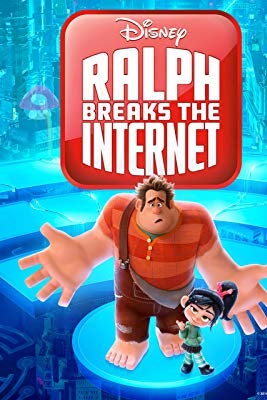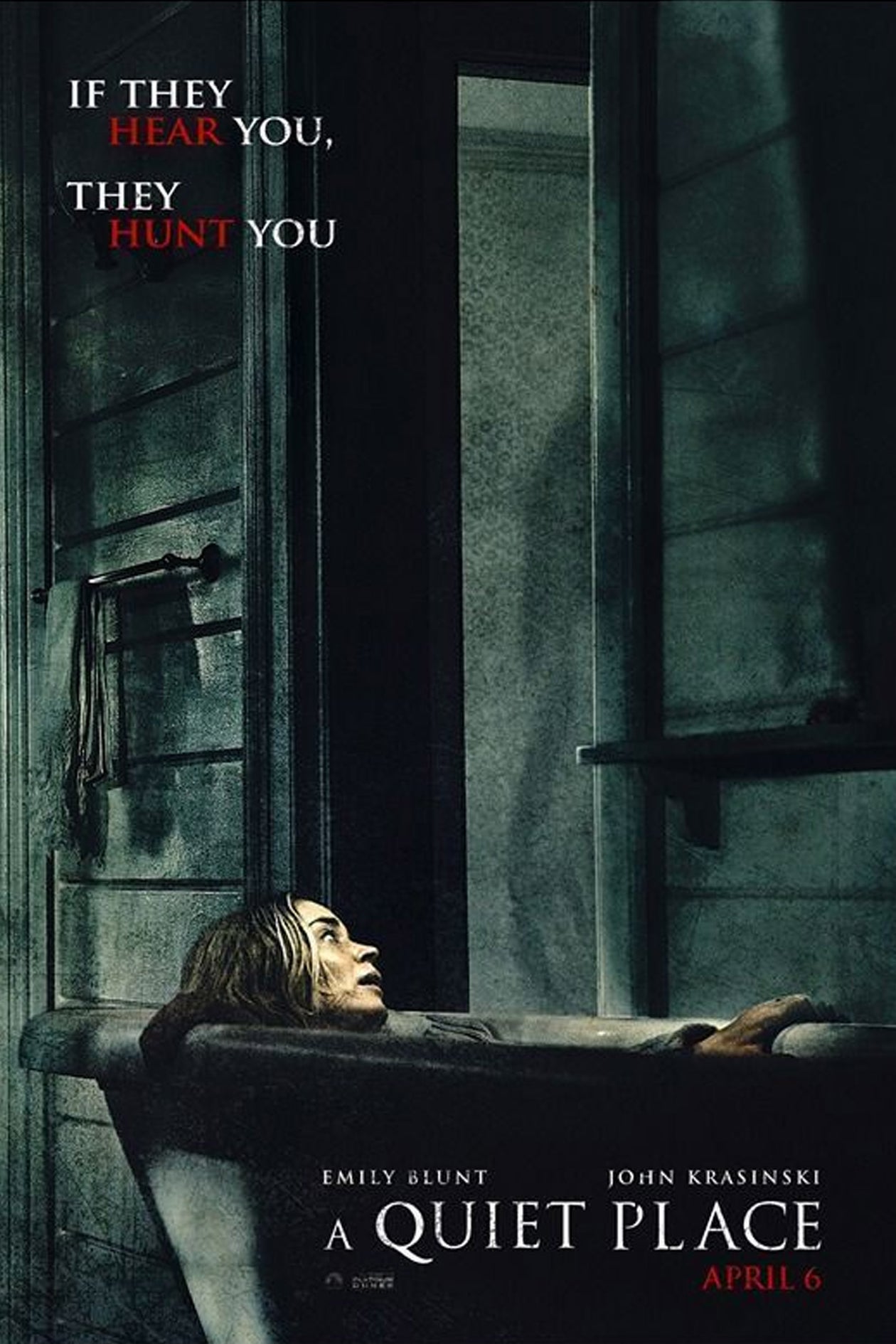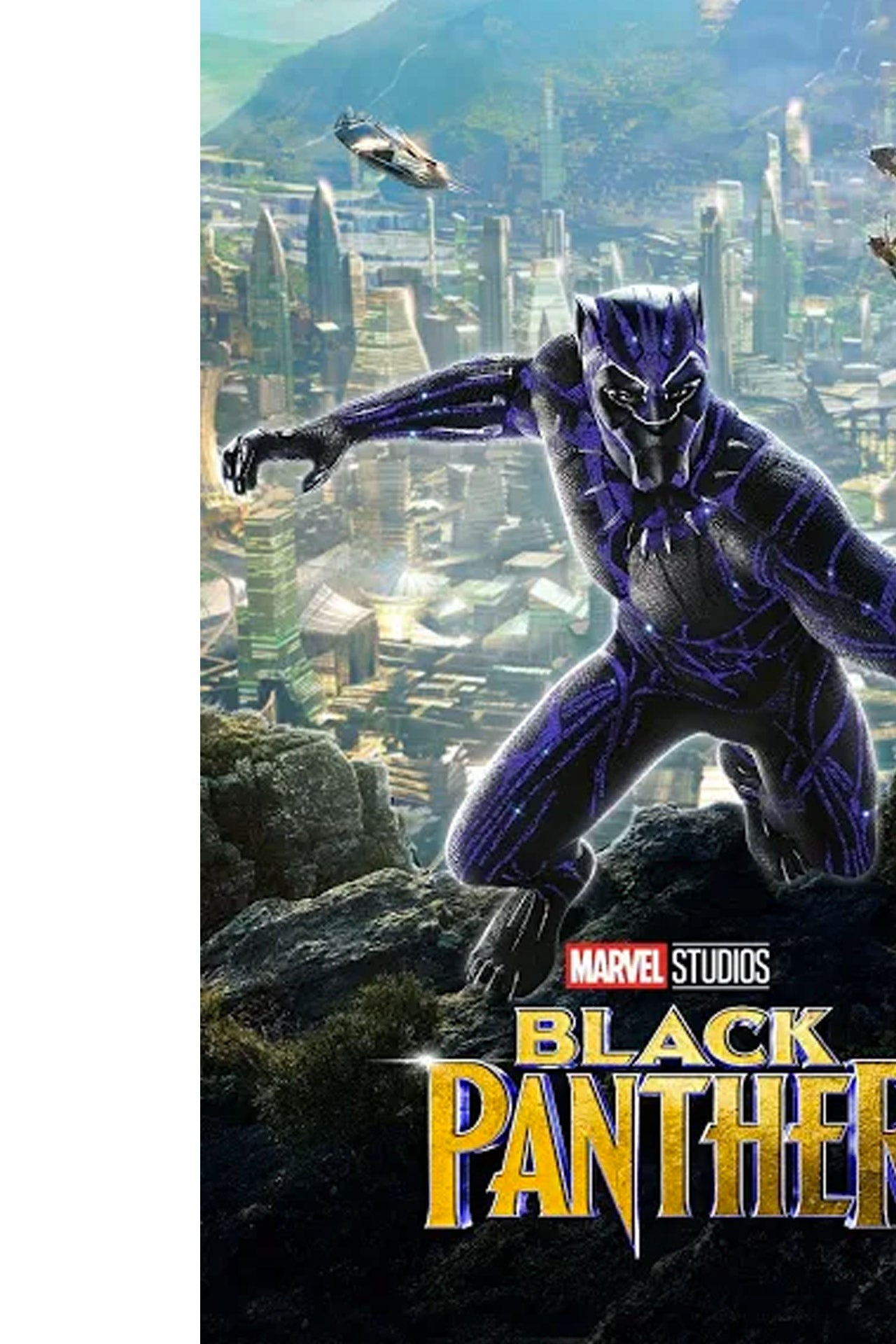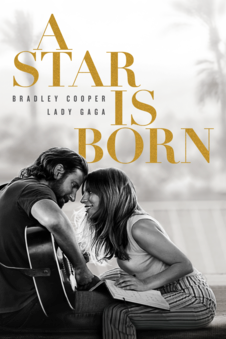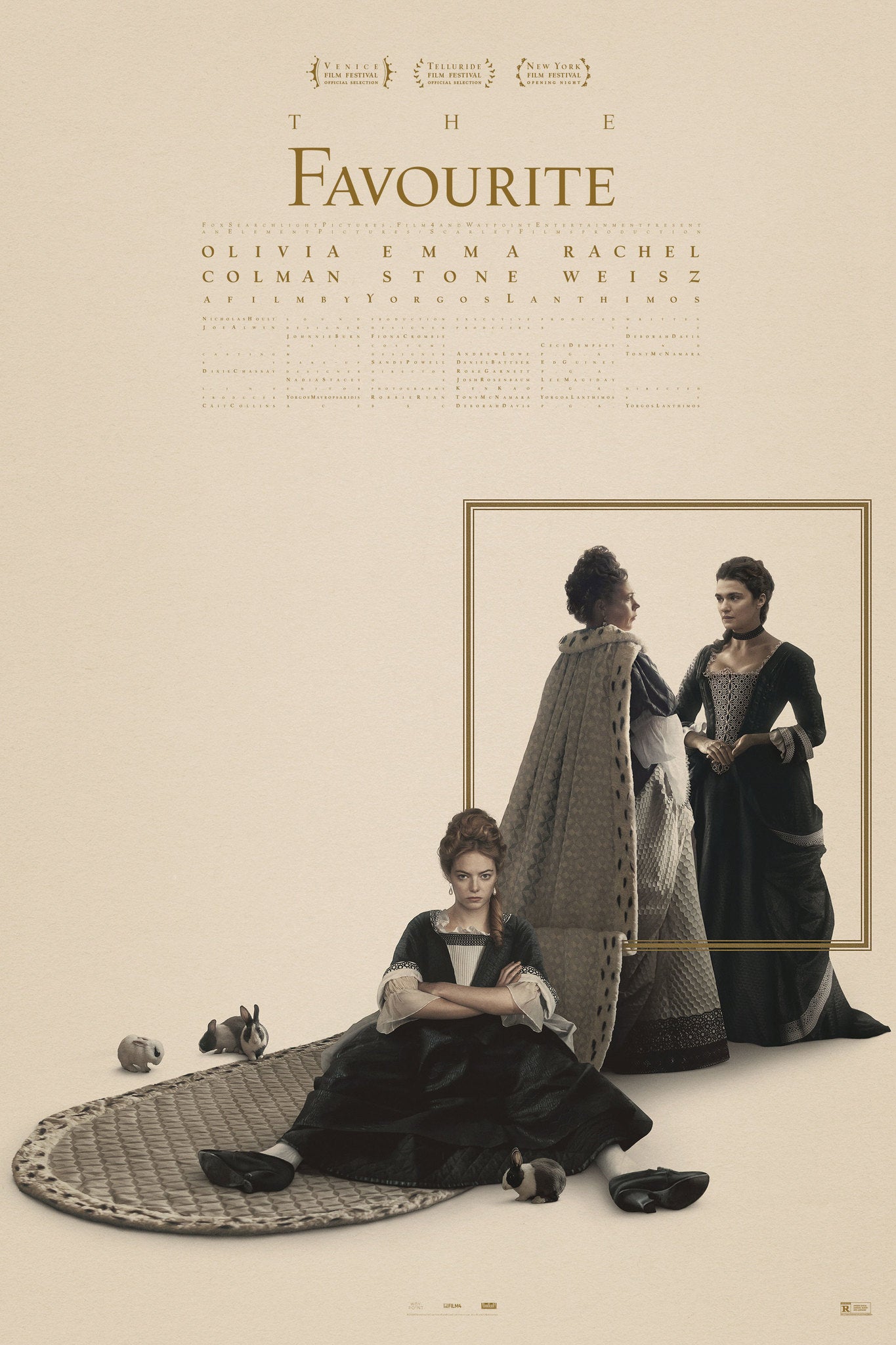Once again, we’re stuck in a debate about the value of the Academy Awards. Is this an industry event designed to honor the best in film art and all the skills, crafts, and disciplines required to produce such a miraculous undertaking? Or is it a televised extravaganza, the last gasp of the monoculture, designed to draw the largest possible audience to their TV sets to advertise the films most likely to draw crowds?
I’d argue that the wealth of films nominated means that the many movie fans who make a project of watching all the Best Picture nominees in a given year are only skimming the surface of what films could accomplish in 2018. The Academy nominated 52 films for at least one Oscar this year, including 15 short films, and as I’ve done many times before, I set out to watch each and every one—and rank them. The Coen brothers and Thanos. The rock-climbing daredevil and the family of superheroes. The trio of scenery-chewing royal schemers and the mother who eats her cute little pork-bun son.
“It’s an honor just to be nominated,” goes the cliché, but it remains the truest thing anyone has ever said about the Academy Awards. Scratch the surface—the Best Picture nominees and major-category winners—and you’ll find the real hidden gold. This year, the eight Best Picture nominees made for a whopping 59 total nominations—essentially half of the total nominations for the year. But on the ranking below, you’ll find six out of my top 10 movies received three or fewer nods. Four of those six are represented by just one lonely nomination. But even a single nomination is a place in the history books for the movie that gets it. It’s a permanent spot on a list where some future cinephile will find it, get curious, and have their life changed.
Defining any given Oscars by the quality of its winners has always missed the point. It’s the same point that’s missed by an Academy desperate for the mainstream and Oscar producers looking to streamline the ceremony out of existence. Don’t follow their lead and only focus on the most-nominated films. Real movie lovers find the diamonds that every year reside in the corners of the Oscar ballot.
52. Skin
Directed by: Guy Nattiv and Jaime Ray Newman
Nominations: (1) Best Live-Action Short Film
A racist skinhead gun enthusiast and his pals beat the hell out of a black man outside a supermarket. In retaliation, the victim’s friends kidnap, assault, and forcibly tattoo the skinhead so extensively that he appears—permanently—black. Whatever good intentions Nattiv and Newman may have had for their short, the result is a rather vile bit of both sides–ism that balances the very real violence black people are subject to against a macabre horror story about roving black gangs. It all leads up to a tragic ending that centers the white family only. It’s bad. (It also lifts the original score from Under the Skin in a manner that only serves to remind you of better movies.) In a year where Green Book actually could win Best Picture, I worry the “makes you think, don’t it?” faux-depth of the premise might give it a shot at winning, but it’s also a deeply unpleasant film to watch, so probably not.
51. Animal Behaviour
Directed by: Alison Snowden and David Fine
Nominations: (1) Best Animated Short Film
Set in a support group for neurotic animals of various species, Animal Behaviour is the rare broad, dialogue-driven comedy in a category often dominated by lyrical, wistful art. Now if only Animal Behaviour could have had better jokes and any kind of structure, rather than meandering around for a too-long 14 minutes and ending with a whimper.
50. Never Look Away
Directed by: Florian Henckel Von Donnersmarck
Nominations: (2) Best Foreign Language Film, Best Cinematography
If there was an Oscar for “most movie,” I’d give it to Von Donnersmarck (who won Foreign Language Film in 2006 for The Lives of Others). At two-plus hours of post-Nazi melodrama and art-world noodlings about truth and reconciliation, it’s a bloated mess that ultimately doesn’t say much. The Suspiria remake (zero nominations!!) eats this film for lunch, and then pukes it out in a gusher of blood.*
49. RBG
Directed by: Julie Cohen and Betsy West
Nominations: (2) Best Documentary Feature, Best Original Song
A textbook example of the popularity of a doc’s subject obscuring the rather simple mechanics and surface-level insights of the film itself. Ruth Bader Ginsburg is a warrior. RBG is a newsmagazine profile.
48. Bohemian Rhapsody
Directed by: Bryan Singer
Nominations: (5) Best Picture, Best Actor, Best Editing, Best Sound Editing, Best Sound Mixing
The year’s lightning rod of a film: The more popular it got ($210 million domestic box office; “A” Cinemascore), the more critics raged about its ineptness, not to mention how questionable it feels to throw awards at a movie whose director is being accused of sexual misconduct with minors. Is this Queen biopic homophobic? Cordoning off a portion of Freddie Mercury’s life as his promiscuous-Sodomite era on his way to rock bottom—and his later death from AIDS—is certainly neither nuanced nor particularly kind. But it’s Bohemian Rhapsody’s slavish devotion to the tired tropes of the rock biopic that are most offensive, and what would seem most embarrassing should it win. (That said … the Live Aid finale is undeniably rousing and reason enough to understand why audiences have responded.)
47. Vice
Directed by: Adam McKay
Nominations: (8) Best Picture, Best Director, Best Actor, Best Supporting Actor, Best Supporting Actress, Best Original Screenplay, Best Editing, Best Makeup/Hairstyling
What Vice gains in adding verve to the biopic formula—including, but not limited to, breaking the fourth wall and at one point having Dick and Lynne Cheney speak their dialogue as Shakespearian drama—it loses in its fatally condescending attitude toward its audience.
46. Ready Player One
Directed by: Steven Spielberg
Nominations: (1) Best Visual Effects
Spielberg’s cavalcade of brands and adventure-fiction IP might have made for a very interesting State of the Genre address from the man who invented the blockbuster with Jaws. Instead, Spielberg stuck closely to the source material and delivered a fine-but-uninspiring Willy Wonka tale for the gamer (sorry, gunter) set.
45. The Wife
Directed by: Björn Runge
Nominations: (1) Best Actress
Every few years, we’re reminded that a movie doesn’t necessarily have to capture the imagination of millions, or even thousands, in order to snag an acting trophy for a beloved performer. If nothing else, the staid visuals and flat flashback structure of The Wife (Glenn Close’s apology Oscar, 2019) could remind people who were snarky about Still Alice (Julianne Moore’s apology Oscar, 2015) that they were too harsh.
44. Christopher Robin
Directed by: Marc Forster
Nominations: (1) Best Visual Effects
Honestly, an adult-size Christopher Robin revisiting his childhood friends at Pooh Corner should be a little bit glum. That Christopher Robin’s flat story—Ewan McGregor’s Christopher is unhappy in his job and stressed as a breadwinner—never develops any non-glum dimensions is why this movie ranks this low. But thanks to a winning (and often quite funny) Pooh, there is sweetness and a little wisdom to be found in this one.
43. Isle of Dogs
Directed by: Wes Anderson
Nominations: (2) Best Animated Feature, Best Original Score
It is very good that the Oscars have finally come around to Wes Anderson and his brand of immaculately put-together little worlds in miniature. You just wish they might have been more interested in honoring Fantastic Mr. Fox, Anderson’s real stop-motion animated masterpiece, rather than this comparably snoozy effort. And then there’s the controversy over the film’s appropriation of Japanese culture and characters. Given how many of Anderson’s previous movies have approached their nonwhite characters in similar ways, it tells you something about this movie that those concerns finally bubbled over into the mainstream press.
42. Green Book
Directed by: Peter Farrelly
Nominations: (5) Best Picture, Best Actor, Best Supporting Actor, Best Original Screenplay, Best Editing
Due credit to Mahershala Ali, but the attempts at humor in this purported comedy about road-tripping one’s way to racial harmony are as cheesy as the pizza Viggo Mortensen’s character folds up and wolfs down in the film’s only enduring moment.
41. At Eternity’s Gate
Directed by: Julian Schnabel
Nominations: (1) Best Actor
On the surface, it’s just another acting-Oscar-bait biopic, the kind of movie that seems designed simply to get its lead a trophy but has little to recommend it otherwise. But Julian Schnabel’s previous Oscar successes (he directed Javier Bardem to a Best Actor nod in 2000’s Before Night Falls and got a Best Director nomination in 2007 for The Diving Bell and the Butterfly) have been anything but formulaic. His impressionistic rendering of the final weeks of Vincent Van Gogh’s life has style to spare, to the point where Willem Dafoe, as Van Gogh, is lost in a pastoral reverie for minutes on end. Indulgent? Yes, but rarely staid. Still, if the Academy were looking to hand it only one nomination, they could have better spent it on Benoit Delhomme’s swirling cinematography or Tatiana Lisovskaya’s elegant score. Dafoe is good as always, but was this worth bumping John David Washington?
40. Mary Poppins Returns
Directed by: Rob Marshall
Nominations: (4) Best Production Design, Best Costume Design, Best Original Score, Best Original Song
Almost everything in this movie is good, from Emily Blunt taking on the challenge of Julie Andrews’ iconic Oscar-winning role, to Ben Whishaw and Emily Mortimer as the grown-up Michael and Jane Banks, to the art direction and the songwriting and Colin Firth’s villainy. The problem is that—likely because the movie itself doesn’t appear to have much reason for existing—none of it is great. Wait, no, I take that back. Meryl Streep and Dick Van Dyke: both great.
39. Mirai
Directed by: Mamoru Hosoda
Nominations: (1) Best Animated Feature
It’s probably unfair that Mirai has to bear the burden of being the first non–Studio Ghibli Japanese animated film to score a nomination. That Mirai doesn’t live up to the likes of Spirited Away and The Wind Rises is nothing shameful. At its best moments, it’s a sweetly magical story of a young family and their problem child. But I would be remiss in not mentioning that said problem child, Kun, is wildly annoying.
38. Fauve
Directed by: Jérémy Comte
Nominations: (1) Best Live-Action Short
Two young boys are heedless and indomitable in that way that young rambunctious boys can be, and they scamper up hillsides and into abandoned train cars just because. Then they find an open-pit mine and find themselves no match for the patch of quicksand at its center. Comte’s film is tense as it unfolds, yet also cheaply fatalistic. Live-action shorts that imperil the life of a child are a dime a dozen in this category.
37. Mary, Queen of Scots
Directed by: Josie Rourke
Nominations: (2) Best Costume Design, Best Makeup/Hairstyling
Josie Rourke and screenwriter Beau Willimon’s exploration of the parallel lives and political struggles of Elizabeth I (Margot Robbie) and Mary (Saoirse Ronan), whose perch on Scotland’s throne comes with a permanent target from her counterparts in London, has plenty of ambition. That’s why nominating this Royals Movie merely for costumes and makeup seems almost like a backhanded compliment. Maybe I’ve seen that Aretha Franklin “great gowns, beautiful gowns” clip one too many times. The Costume Design category is a slam-dunk for royals-wear, and Alexandra Byrne herself has previously been nominated for her opulent work in Royals Movies good (Elizabeth) and bad (Elizabeth: The Golden Age). The makeup nomination is certainly for making Robbie’s Elizabeth look properly stricken with pestilence and caked-over as she prepared to face down her formidable cousin.
36. Weekends
Directed by: Trevor Jimenez
Nominations: (1) Best Animated Short
Jimenez parlayed his gig at Pixar to get the resources to make this short, an autobiographical tale of growing up with his mom in Hamilton, Ontario, and then spending weekends with his dad in Toronto. The animation is beautiful with a dark and distressed quality that fits the story. Should draw votes from the Dire Straits partisans in the Academy for making liberal use of “Money for Nothing.”
35. Solo: A Star Wars Story
Directed by: Ron Howard
Nominations: (1) Best Visual Effects
After a stormy production, Solo went and only made $213 million domestic—a dumb stinky failure for Lucasfilm/Disney, and so we shall never speak the name Young Han Solo again. Watching it now, without all that baggage? … Honestly, it’s OK. Alden Ehrenreich was never going to escape the shadow of Harrison Ford, but if you can put that out of your mind he’s a fine adventurer, and he and Emilia Clarke spark well together. Still, even the much-ballyhooed scenes with Donald Glover’s Lando don’t feel anchored by a substantial story. Paul Bettany plays a great villain, for what it’s worth.
34. The Ballad of Buster Scruggs
Directed by: Joel and Ethan Coen
Nominations: (3) Best Adapted Screenplay, Best Costume Design, Best Original Song
Would this have worked as a Netflix series? Did packaging it as an anthology movie give Scruggs the jolt of mystique necessary to let viewers overlook the long, boring stretches, or the ending that doesn’t go anywhere (uh, literally), or the very loose theme of “death … in the Old West”? Scruggs has its moments, and it certainly has its fans, but I ain’t one of ’em.
Stream The Ballad of Buster Scruggs on Netflix.
33. Lifeboat
Directed by: Skye Fitzgerald
Nominations: (1) Best Documentary Short
Treading similar ground as the 2016 Documentary Feature nominee Fire at Sea, this is an up-close look at rescue workers in the Mediterranean dealing with the refugee and migrant crisis. While other films have focused on the migrants themselves, Lifeboat derives its power from illustrating the massive task at hand, and how overwhelmed this one particular organization is by the number of refugees who take to the water.
32. Marguerite
Directed by: Marianne Farley
Nominations: (1) Best Live Action Short
An elderly woman in home care awakens to long-suppressed and nearly forgotten feelings when her private nurse reveals she’s a lesbian. It’s a decidedly muted and respectful telling of a quietly maverick tale, and the juxtaposition ends up working mostly in the film’s favor.
31. Detainment
Directed by: Vincent Lambe
Nominations: (1) Best Live Action Short Film
There’s been some controversy over this one, as Lambe’s film is a dramatization of the police interrogation of the 10-year-old boys who were ultimately tried and convicted for the murder of 2-year-old James Bulger in 1993. The case traumatized the U.K. and has been the basis for many fictionalized film accounts (Andrew Garfield in Boy A comes to mind), but Lambe and Mahon take on the case head-on, without the blessing of Bulger’s family. The film isn’t overly ambitious in form, but in asking us to contemplate these children as kids and killers at once, it’s sufficiently bold.
30. Avengers: Infinity War
Directed by: Joe and Anthony Russo
Nominations: (1) Best Visual Effects
The films of the Marvel Cinematic Universe have always been more self-contained than they’ve been given credit for, telling complete stories that one could plausibly enjoy without having consumed the entire epic series. Not so with Infinity War, which plays less like a story and more like that thing where you’re a kid and you smash all your action figures together. Not that that doesn’t make for the kinds of wonderful character crossovers fans have been waiting years for (I was particularly partial to the trio of Black Widow, Scarlet Witch, and Okoye wrecking shit on the battlefield), but it’s definitely the first MCU movie that felt purely like a cog.
29. Late Afternoon
Directed by: Louise Bagnall
Nominations: (1) Best Animated Short
The Best Animated Short category is given to sad, ephemeral whimsy like this tale of an old woman suffering from dementia, whose mind takes her on a swirling tour through the memories of lost love and youth. This is a particularly sensitive and effective story in this mode as the elderly protagonist (voiced by Fionnula Flanagan from The Others) struggles to communicate with her caregiver. The twist is not particularly surprising; the gorgeous watercolor effect of the animation in her memories is the real draw here.
28. Madre
Directed by: Rodrigo Sorogoyen
Nominations: (1) Best Live Action Short
A divorced mother gets a phone call from her young child who’s on holiday with his dad somewhere in France … or is it Spain? The kid says his father left him on the beach to get something from the car, and he hasn’t come back. He’s alone on the beach and no one’s around. (Cue the plinky piano chords of “Look What I Found.”) What follows is a panicked mother scrambling to help rescue her child from afar, and while Madre ultimately runs into the same brick wall its main character does (there’s only so much anyone can do in these particular circumstances), it’s very effective in communicating dread.
27. Period. End of Sentence.
Directed by: Rayka Zehtabchi
Nominations: (1) Best Documentary Short
Everything from systemic subjugation of women to third-world health care gets wrapped up in the satisfyingly process-y Period. End of Sentence. The film observes a group of Indian women working to mass-produce sanitary pads and distribute them to women in their country who have for too long been essentially confined to their homes because of the stigma and inconvenience of menstruation. The film is a window into centuries-long suppression—and the empowerment of practical solutions.
Stream Period. End of Sentence. on Netflix.
26. Cold War
Directed by: Pawel Pawlikowski
Nominations: (3) Best Foreign Language Film, Best Director, Best Cinematography
Half a story of doomed romance, half a lush black-and-white film about post-WWII ennui, Cold War started captivating critics and audiences at Cannes and never stopped. But given its drawbacks as an awards contender—a black-and-white foreign-language film with no stars, and a downbeat ending in a year when Roma was already an exception to those rules—how did Cold War manage to charm Academy voters to the tune of a “lone director” nomination (i.e. one without a corresponding Best Picture nod), only the second time that’s happened since Best Picture expanded in 2009?
25. Black Sheep
Directed by: Ed Perkins
Nominations: (1) Best Documentary Short
Black Sheep uses a combination of confessional interview and dramatic re-creation to tell the story of a young black man, Cornelius Walker, whose family moves out of their dangerous London neighborhood only to encounter violent racism in the suburbs. And while that racism is horrifying in and of itself, the lengths to which Walker goes to assimilate into his surroundings anyway—going so far as to lighten his skin and eye—is depicted with soul-crippling clarity.
24. Capernaum
Directed by: Nadine Labaki
Nominations: (1) Best Foreign Language Film
It’s a testament to the caliber of this year’s foreign-language nominees that Capernaum, a film that received the Jury Prize (as well as a reported 15-minute standing ovation) at Cannes, lands only in the middle of this particular pack. It’s an unflinching film, though, following a young boy in Lebanon who’s taking his parents to court for the crimes he’s committed. What crimes? What awful thing could this boy have done? The film unravels this story in surprising ways—and not always in the darkest way possible, a real relief to the viewer mainlining Oscar nominees.
23. Hale County This Morning, This Evening
Directed by: RaMell Ross
Nominations: (1) Best Documentary Feature
Despite widespread acclaim for this remarkably lived-in look at the black residents of Hale County, Alabama, many Oscar observers thought this might be too challenging to get enough votes for a nomination. Thankfully that wasn’t the case, and RaMell Ross’ artfully reflective film got the platform it deserved. Unfolding like a Frederick Wiseman film infused with philosophical musings about the ways in which we value (or fail to value) black lives, it’s a striking meditation.
22. Of Fathers and Sons
Directed by: Talal Derki
Nominations: (1) Best Documentary Feature
A surprising documentary nominee, in that it bested box-office successes like Won’t You Be My Neighbor and Three Identical Strangers, in this particularly strong year for commercial docs. Talal Derki’s film gives the category an infusion of gravitas. Derki risked his life by posing as a sympathetic journalist to embed himself with a jihadi family in the middle of the war in Syria. The up-close experiences of jihadi snipers, Russian airstrikes, and devastating land mines are no match for the gut punch of watching a loving father bring up his two sons in hardened anticipation of the coming caliphate.
21. Free Solo
Directed by: Elizabeth Chai Vasarhelyi and Jimmy Chin
Nominations: (1) Best Documentary Feature
In many ways, this story of daredevil rock climber Alex Honnold seeking to accomplish a “free solo” ascent (i.e. no safety ropes or harnesses) of Yosemite’s El Capitan reminds you of Werner Herzog’s Grizzly Man, another story of man seeking to commune with unfeeling nature that will make no bones about killing him. And while the protagonist of Free Solo is not so willfully naïve as Timothy Treadwell was about just how dangerous his endeavors are, it’s hard not to hear that nagging Herzog voice in the back of your mind: Eet weel bee hiss own fault. Of course, the maddening nature of a personality like Honnold’s is the true subject of this documentary; we wring our hands and agonize with the film crew, and sympathize with his poor girlfriend who should absolutely leave him … but we all end up on tenterhooks by the end, watching the breathtakingly filmed ascent with the fervent, desperate hope he’ll make it.
20. One Small Step
Directed by: Andrew Chesworth and Bobby Pontillas
Nominations: (1) Best Animated Short
The new U.S./China animation studio TAIKO produced their first film this year with One Small Step, and it’s an auspicious beginning. A sweet, sad, and ambitious tale of a young Chinese-American girl who dreams of becoming an astronaut, the short definitely follows the Pixar template of employing one simple sentimental conceit and following it through beautifully.
19. End Game
Directed by: Rob Epstein and Jeffrey Friedman
Nominations: (1) Best Documentary Short
A group of health care professionals dedicate their professional lives to providing palliative care to the terminally ill and dying? End Game sounds like a parody of this category’s propensity for devastating tales of loss and misery. But while sadness surrounds these stories, there’s also insight into how the concept of “health care” for the dying can mean much more than pain management. Epstein and Friedman do a great job of letting the viewer inside these interactions without feeling suffocated by grief.
18. Incredibles 2
Directed by: Brad Bird
Nominations: (1) Best Animated Feature
Fourteen years after the first Incredibles won this very same category, the sequel comes along, backed by rave reviews and a hefty box office, and yet there seems to be no urgency for it. People were so excited about the first movie that Edna Mode was brought out to the Oscar stage to present an award! It’s too bad because a sequel that hands the reins to Elastigirl and allows her to self-actualize (and navigate a fraught business/friend relationship with Catherine Keener) is exactly the kind of evolution I want to see from Pixar.
17. A Night at the Garden
Directed by: Marshall Curry
Nominations: (1) Best Documentary Short
The novelty of A Night at the Garden—that at seven minutes it’s the rare documentary short that is actually short; that it’s entirely composed of archival footage of a Nazi rally held at New York’s Madison Square Garden in 1939—threatens to eclipse what is so subtly powerful about this film. New York City’s most storied arena is filled with American men and women barking out our Pledge of Allegiance and throwing up Nazi salutes in the name of “America first.” A German-accented Nazi rep gets bum-rushed on stage by a protester who is swiftly and violently subdued. A Night at the Garden feels like a newspaper clipping that’s been left conspicuously on your desk for you to find. The evidence is clear; it’s up to you to connect the dots.
Watch A Night at the Garden on Slate.
16. Bao
Directed by: Domee Shi
Nominations: (1) Best Animated Short
Have you heard the one about the mother who eats her son because her son is an adorable steamed bun? The premise of this short famously confounded some viewers when Bao played in front of Incredibles 2, but in confronting the overt strangeness of animation’s insistence of telling relatable family stories through anthropomorphized characters, Bao managed to seem avant-garde while maintaining its sentimental core. It’s quite a feat.
15. First Man
Directed by: Damien Chazelle
Nominations: (4) Best Production Design, Best Sound Mixing, Best Sound Editing, Best Visual Effects
Seen as an early front-runner in the Oscar race, Chazelle’s telling of the NASA moon landing through the eyes, experience, and decidedly downbeat demeanor of Neil Armstrong (Ryan Gosling) definitely fell short of expectations. But that may well end up enhancing the film’s prospects for later re-assessment. It’s easy to see why audiences failed to latch onto the human story given that Gosling’s version of Armstrong refuses, seemingly as a matter of principle, to display a personality. But the sheer force of Chazelle’s sound and visuals shakes you (often literally!) out of complacence.
14. BlacKkKlansman
Directed by: Spike Lee
Nominations: (6) Best Picture, Best Director, Best Supporting Actor, Best Adapted Screenplay, Best Editing, Best Original Score
Spike Lee makes his long-awaited entry into the top Oscar categories with this unbelievable true story about a black Colorado Springs cop (John David Washington) who infiltrates the local chapter of the KKK using his white phone voice and an in-person white detective (Adam Driver). It’s both an audacious provocation—Lee is typically uninterested in subtlety while connecting the Klan of old with the racial violence of today—and remarkably crowd-pleasing.
13. First Reformed
Directed by: Paul Schrader
Nominations: (1) Best Original Screenplay
It’s a shame that this year’s Oscars couldn’t find room for both the Paul Schrader comeback narrative and the Ethan Hawke performance-of-a-career narrative, because surely both men deserved it. Hawke ended up on the outside looking in on a Best Actor race he probably deserves to win outright, but thank goodness for the nod for Schrader’s script. Beyond all the narratives (it’s indeed messed up that he wasn’t nominated for Taxi Driver!), First Reformed captures the swirl of dread, regret, rage, and helplessness that comes with living and paying any kind of attention at all in 2019.
12. Shoplifters
Directed by: Hirokazu Kore-eda
Nominations: (1) Best Foreign Language Film
Palme d’Or winners aren’t always sure bets to repeat at the Oscars, but it’s hard to imagine anyone who wouldn’t have been charmed by Kore-eda’s deeply felt and tenderly observed story about a cobbled-together family living on the margins in Tokyo.
11. Ralph Breaks the Internet
Directed by: Rich Moore and Phil Johnston
Nominations: (1) Best Animated Feature
The busy, bustling, creative world of Wreck-It Ralph was so overstuffed with possibility that a sequel seemed even more inevitable than these things usually are. That this particular sequel feels as specific and targeted as it does—while also turning Disney brand service into an especially fun (and meaningful!) moment with the princesses—is a credit to Moore, Johnston, and co-screenwriter Pamela Ribon.
10. A Quiet Place
Directed by: John Krasinski
Nominations: (1) Best Sound Editing
It’s a shame a hit movie that for quite a while seemed on the precipice of nominations in categories like Supporting Actress, Original Score, and even Best Picture got busted down to a lone nod for its (excellent) sound editing. Krasinski’s clever, tense sensory-deprivation thriller got audiences invested in its characters first, and then made them hold their breath about their fates for an hour. Bonus points for one of the best cut-to-black endings of the year.
9. Black Panther
Directed by: Ryan Coogler
Nominations: (7) Best Picture, Best Production Design, Best Costume Design, Best Original Score, Best Original Song, Best Sound Mixing, Best Sound Editing
2018 kicked off with a Wakandan call to action: Let’s see if we can get this most singular of Marvel movies into the Best Picture category on will and enthusiasm alone. The enthusiasm was certainly there, from fans and from the numerous celebrity admirers who knew how important the empowerment narrative was, both on- and off-screen. The will came on the part of Kevin Feige and the Disney/Marvel machine, which for the first time really put its shoulder into an Oscar campaign. The result was unprecedented Oscar success for a superhero movie—and somehow, it still feels like some of the worthiest nominations, like Coogler for Best Director, Michael B. Jordan for Supporting Actor, and the visual effects, were left on the table.
8. Minding the Gap
Directed by: Bing Liu
Nominations: (1) Best Documentary Feature
Bing Liu’s debut film was an underdog throughout the year’s race to the Oscar nominations, but it might now be time to wonder if this years-spanning document of a group of skateboarding friends and the abuse they’ve faced through their lives stands a shot at actually winning. Look, Ruth Bader Ginsburg’s popularity will probably take the day, but Liu’s film is such an empathetic yet insightful peeling back of the toxic masculinity inherent in growing up as a young man amid a cycle of violence that, like Man on Wire or Amy before, it’s become a contender on merit alone.
Stream Minding the Gap on Hulu.
7. Border
Directed by: Ali Abbasi
Nominations: (1) Best Makeup/Hairstyling
Part dark fairy tale, part kitchen-sink drama about inclusivity, part sexual awakening, Border defies tidy genre summary as much as it defies plot summary, but here we go: A Swedish border-control agent named Tina is employed as such because of her uncanny ability to (literally) sniff out sketchy travelers who are smuggling contraband. Tina’s appearance is also … well, she’s got a big ol’ scary face. Like a monster’s face. Like a troll’s face. And people react to her as such. So when she meets a man in the security line with the same kind of appearance, she’s drawn to him. From there, Border can feel like a parody of self-actualization, even as a darker crime story bubbles under the surface. This is that rarest of birds: a truly unique film experience. Which is why you should get out and see it immediately.
6. Spider-Man: Into the Spider-Verse
Directed by: Bob Persichetti, Peter Ramsey, Rodney Rothman
Nominations: (1) Best Animated Feature
Show of hands: Who thought we needed another Spider-Man movie? Maybe that’s the trick of why Into the Spider-Verse works so well—and oh my goodness does every single moment of this movie work—because it felt so extra and so superfluous, the filmmakers and animators seized the freedom to experiment to their hearts’ content. Thus far, the multi-dimensional, parallel-reality nature of comic-book storylines has mainly been handled by TV shows like The Flash. In letting Spider-Verse indulge in multiple Spidey incarnations among endless worlds, it got to combine aesthetics, from noir to anime to Looney Tunes, and morph into the one thing a Spider-Man movie has never been able to be before: a team sport.
5. Roma
Directed by: Alfonso Cuarón
Nominations: (10) Best Picture, Best Director, Best Actress, Best Supporting Actress, Best Foreign Language Film, Best Original Screenplay, Best Cinematography, Best Production Design, Best Sound Mixing, Best Sound Editing
Cuarón’s film has made for such a curious front-runner this Oscar season that we keep coming up with narratives for why it isn’t the front-runner—despite its 10 nominations, scoring big with the technical branches and the actors. (Those two surprise acting nominations sure seem to indicate a groundswell of support!) The truth is, despite being a slowly-unfolding black-and-white memory piece that streamed on Netflix, Roma is everything a Best Picture winner should be. It’s the work of a master filmmaker working at the height of his ability and on his most personal project to date. Watching Roma, you can see snatches and whispers from Cuarón’s entire filmography: a shot of a car window that recalls Y Tu Mamá También; a tracking shot of unfolding chaos referencing Children of Men; a woman stomping down a beach with life-saving determination, feeling ever so Gravity-esque.
4. A Star Is Born
Directed by: Bradley Cooper
Nominations: (8) Best Picture, Best Actor, Best Actress, Best Supporting Actor, Best Adapted Screenplay, Best Cinematography, Best Original Song, Best Sound Mixing
If not a tale as old as time, it’s at least a tale as old as Oscar (or nearly; Janet Gaynor was nominated for Best Actress in the first A Star Is Born at the 10th Academy Awards). But Bradley Cooper, Lady Gaga, Sam Elliott, Matthew Libatique, Mark Ronson, and everybody else involved in this production really pulled it off: the specificity and easy chemistry of those earliest scenes in the gay bar and the parking lot; the way the film’s structure depends on specific songs like in a for-real musical; and most especially, that big moment—by a mile the scene of the year in film—where Ally (and Gaga herself) traverses those 20 feet from the side of the stage to the lead microphone and wails out a lifetime’s worth of hope and frustration. Win or lose, that moment’s ours forever.
3. Can You Ever Forgive Me?
Directed by: Marielle Heller
Nominations: (3) Best Actress, Best Supporting Actor, Best Adapted Screenplay
To call Lee Israel, as played to utter perfection by Melissa McCarthy, abrasive would be an insult to Brillo Pads. The semi-unsuccessful celebrity biographer stalks the New York City of the early ’90s, hopping from daytime bar to bookstore to nighttime bar to her crappy apartment, leaving a trail of invective in her wake. And then one day, she stumbles upon the idea to start forging original correspondence from the notable figures she’s been writing about. Can You Ever Forgive Me? is a scammer’s movie, yes, but it’s also a movie about dealing with failure in New York; about the value of queer friendships (enter the sublime Richard E. Grant); and about feeling like less of a fraud, even when you’re being fraudulent, because at least you’re using your talents. One of the true, pure pleasures of awards season.
2. If Beale Street Could Talk
Directed by: Barry Jenkins
Nominations: (3) Best Supporting Actress, Best Adapted Screenplay, Best Original Score
I suppose it was too much to hope for Barry Jenkins to go back-to-back on Best Picture for movies that shine a light on black love and desire. Moonlight’s triumph two years ago stands on its own. But what Jenkins does with James Baldwin’s novel here is transform what is so often depicted as blunt and brutish into something rich and full. Jenkins never takes his eyes off the injustice that befalls his young lovers, but he also elevates what’s beautiful in their love, and what’s beautiful in the way their community responds to and rallies to support that love. There were few better films released this year.
1. The Favourite
Directed by: Yorgos Lanthimos
Nominations: (10) Best Picture, Best Director, Best Actress, Best Supporting Actress (x2), Best Original Screenplay, Best Cinematography, Best Editing, Best Costume Design, Best Production Design
It only took eight short years for Yorgos Lanthimos to go from he’ll-never-get-nominated-again Foreign Language Film insurgent to overall nomination co-leader, but the best thing about the Greek filmmaker’s ascent is that he’s done so without softening his edges or losing that lunatic sense of humor. Hollywood came to him, from the cracked love story in The Lobster to the dead-eyed horror of The Killing of a Sacred Deer to, now, The Favourite, which dresses up pain, disease, treachery, sex, love, disfigurement, treason, dance, and ducks in the familiar period garb of all those other costume dramas. The interplay between Rachel Weisz, Olivia Colman, and Emma Stone—with Tory fop Nicholas Hoult thrown in for good measure—is thrilling and hilarious and sad and dishy, and puts to shame any other royals-based entertainments of recent years. This is Yorgos’ world, and it’s a scream.
Slate has relationships with various online retailers. If you buy something through our links, Slate may earn an affiliate commission. We update links when possible, but note that deals can expire and all prices are subject to change. All prices were up to date at the time of publication.
Correction, Feb. 20, 2019: This piece originally misidentified the film Never Look Away as Never Look Back.
